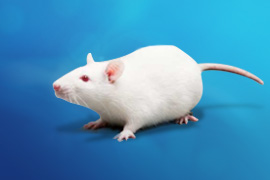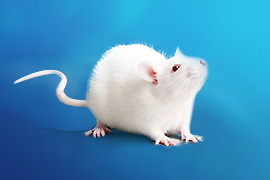
As age increases, hearing declines, manifested as mixed hearing loss, that is, conductive hearing loss.
Spontaneous tumors are common and malformations are prone to occur.
Aged male F344 rats have significantly reduced fertility or spontaneous infertility, manifested as decreased sperm survival rate, high deformity rate, low vitality, and abnormal nuclear maturity.
Sensitive to various carcinogens and can develop liver cancer.
Low rejection reaction is beneficial for transplantation experiments.
Physiology research.
One of the most commonly used animal species in carcinogenic experiments.
Toxicity or toxicology studies.
Animal models of age-related hearing loss.
Age-related decline in renal function.
Models of allergic diseases.
Induction model of arthritis: F344 raised in aseptic environment are sensitive to adjuvant-induced arthritis (AIA).
The relationship between iron and Parkinson's disease.
Animal models of stress and psychosomatic medicine: Compared with Lewis rats, F344 rats hav
-
 Wistar RatDeveloped by the Wistar Institute in the United States in 1907. In 2019, SpePharm (Beijing) Biotechnology Co., Ltd. introduced breeding from the National Rodent Laboratory Animal Seed Center.More
Wistar RatDeveloped by the Wistar Institute in the United States in 1907. In 2019, SpePharm (Beijing) Biotechnology Co., Ltd. introduced breeding from the National Rodent Laboratory Animal Seed Center.More -
 ICR miceIn 1926, the Rockfeller Institute of the United States introduced albino mouse from Switzerland to breed Swiss mouse; in 1948, it was introduced by the Philadelphia Cancer Institute and bred Ha/ICR. In 1973, it was introduced into China and in 2011, SPF (Beijing) Biotechnology Co., Ltd. introduced it from the National Rodent Experimental Animal Seed Center and bred it.More
ICR miceIn 1926, the Rockfeller Institute of the United States introduced albino mouse from Switzerland to breed Swiss mouse; in 1948, it was introduced by the Philadelphia Cancer Institute and bred Ha/ICR. In 1973, it was introduced into China and in 2011, SPF (Beijing) Biotechnology Co., Ltd. introduced it from the National Rodent Experimental Animal Seed Center and bred it.More








